With change coming to Washington, does higher education face a ‘dystopian’ future?
President-elect Donald Trump is signaling disruptive changes for colleges and universities, says John A. Douglass at UC Berkeley’s Center for Studies in Higher Education. Even as they try to manage the risk, he says, they should work to shore up public trust.

Photo illustration by Neil Freese
November 27, 2024
Higher education was one of Donald Trump’s preferred targets during the presidential campaign, and he famously warned that colleges and universities have “become dominated by Marxist maniacs and lunatics.” Now, as Trump prepares his return to the White House, an influential Berkeley expert says that academia will likely be confronted by historic challenges in the months ahead.
John Aubrey Douglass, senior researcher at Berkeley’s Center for Studies in Higher Education, said the new administration is signaling disruption to U.S. campuses on a seismic scale: dramatic cuts in student aid, dramatic cuts in research funding, possible deportation of tens of thousands of students, and perhaps aggressive efforts to impose more federal control curriculum, faculty hiring and other day-to-day university operations.
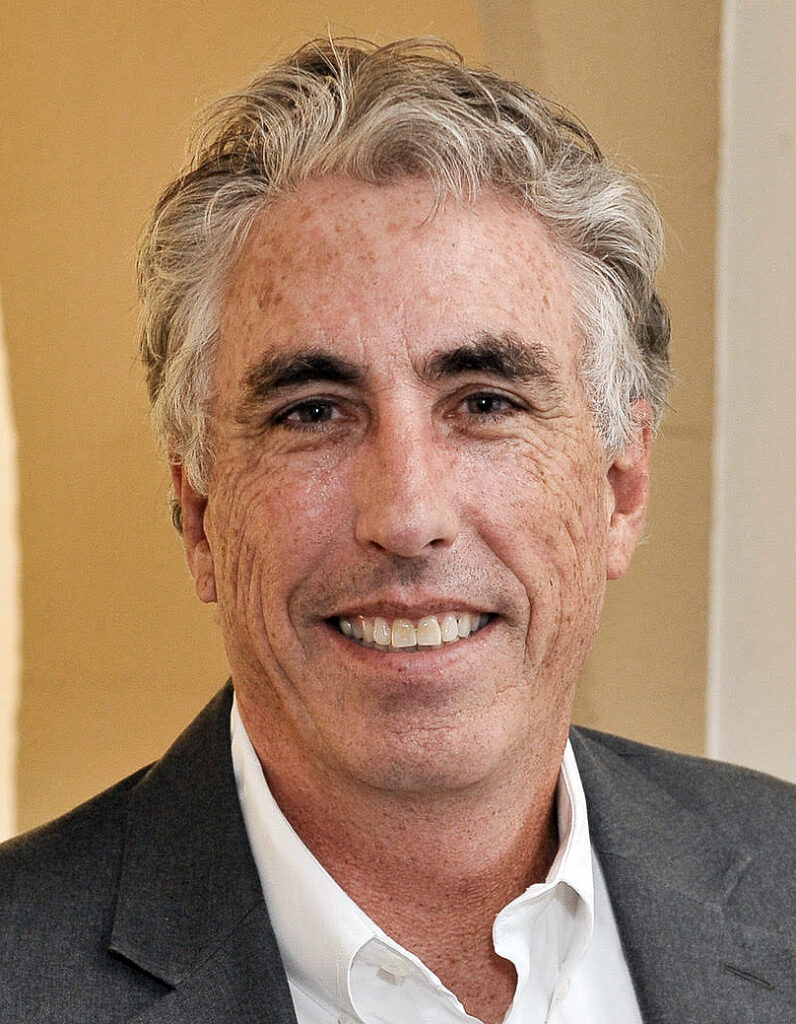
The signals suggest “a dystopian — but possible — future for American higher education,” Douglass told UC Berkeley News. “In the higher ed community and among those who support higher ed, there’s a hope that we won’t be facing these kinds of terrible things. Certainly it’s difficult to predict the future, but maybe the higher ed sector is not fully appreciating the threat that we face.”
Douglass has written and lectured extensively on higher education in the U.S. and worldwide. In his 2021 book, Neo-nationalism and Universities: Populists, Autocrats, and the Future of Higher Education, Douglass and other writers detailed how hard-right populist governments have targeted colleges and universities in countries ranging from China and Russia to Turkey, Hungary, Brazil — and the U.S.
Throughout an interview with UC Berkeley News, Douglass maintained a balanced perspective, cautioning against catastrophic thinking and pointing to the potential for constructive developments. Still, he acknowledged, “it’s a whole new world.”
UC Berkeley News: Given the election results, is higher education in America entering a period of risk?
John Aubrey Douglass: Absolutely. This is a very new environment we’re entering. It’s not the same as in 2016, with Trump and a disorganized administration and a confusing agenda related to higher ed and many other areas. We’re really entering a very scary period.
It’s speculation, but you can see the outline of an agenda — the Heritage Foundation’s Project 2025, or the America First Policy Institute, describe plans to change accreditation of colleges and universities and change student loans. There has been discussion of dismantling the Department of Education, which seems like a very heavy lift.
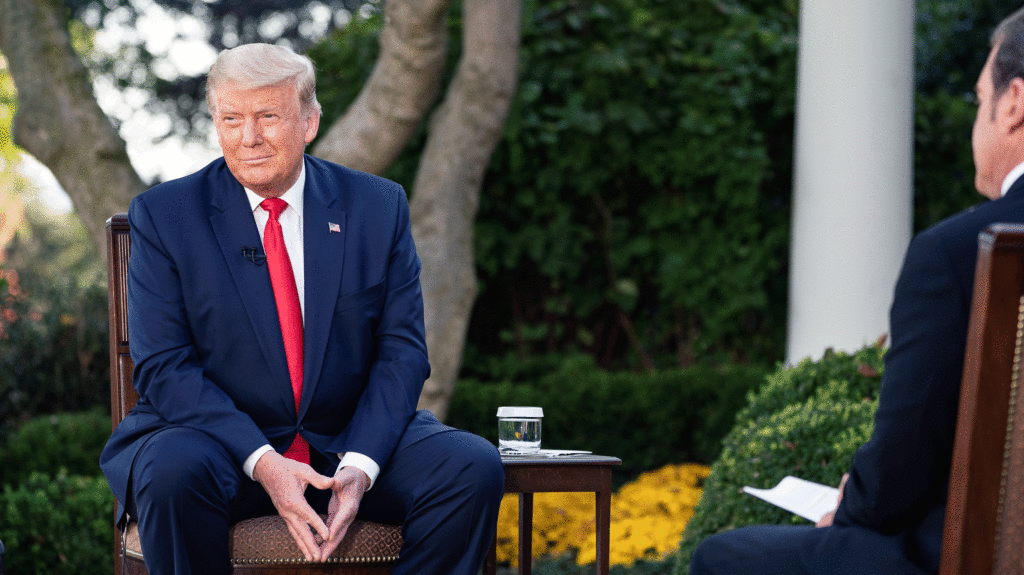
Joyce N. Boghosian/White House
We see a lot of indicators that there are going to be really significant, across-the-board-financial cuts to the federal government. We could see a significant impact not just on financial aid, but potentially academic research.
Looking at the first Trump administration [starting in 2017] and then the policy recommendations from the Heritage Foundation and others, DACA might really be on the ropes here.
You remember that DACA — Deferred Action for Childhood Arrivals — was a program by the Obama administration that gave legal status to children who were brought to the country by their undocumented parents. Trump tried to end it, but his administration was disorganized and that was temporarily blocked in the courts.
Again, we’re speculating — there are reasons to hope that this won’t happen. But will DACA students be identified in some form under this new initiative to deport undocumented people?
What did you make of the president-elect’s nomination last week of Linda McMahon to be the new education secretary? She doesn’t have much experience in education — she trained as a teacher, but made her reputation by working with her husband to build a global wrestling and entertainment empire. How do you read that signal?
She’s another celebrity pick for the cabinet. She does have some experience — she was on the state school board for a period in Connecticut.
But she’s one of the founders of the American First Policy Institute. The institute is focused on attacking DEI — diversity, equity and inclusion — and modeling a lot of what the federal government might do on what Florida has done with the Stop WOKE Act. There is an End Woke Act at the federal level that already has been passed by the House.
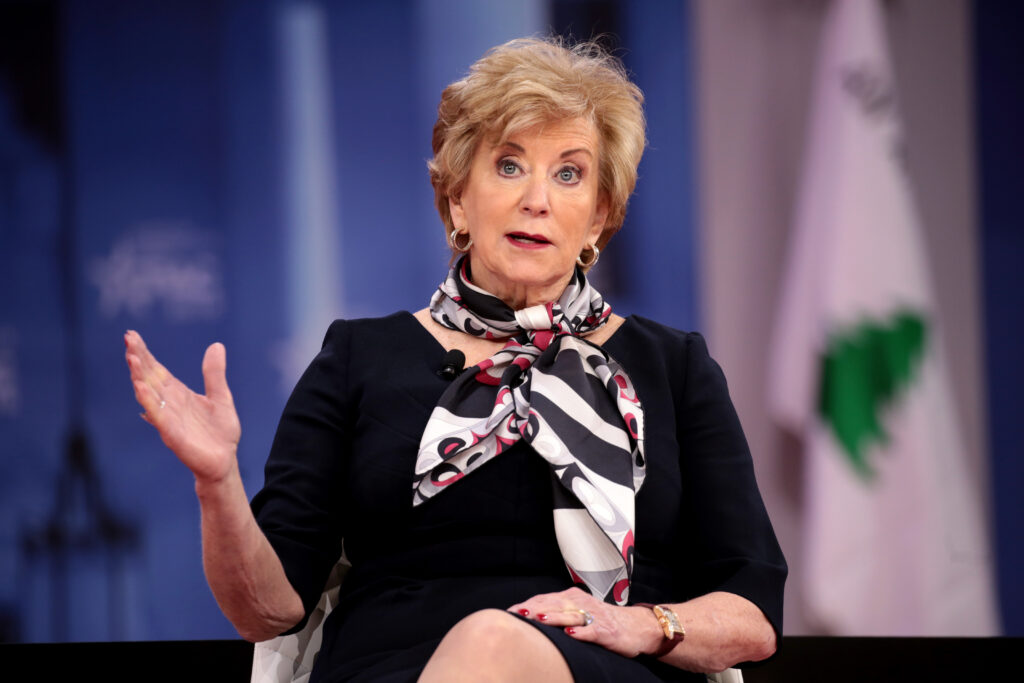
Gage Skidmore via Flickr
This is all part of a scenario in which we might see much more significant federal intervention into the academic operation of universities and colleges and an erosion in their autonomy. This will be a very different role for the federal government — we’ve never seen it before at this scale.
McMahon also has an interest in vocational education, and there are lots of good things we could be doing in vocational ed in the United States. So it’s not all bad.
Accreditation is not a very sexy issue, but the independent bodies that assess colleges and universities and grant them accreditation are central in establishing and maintaining high educational standards and practices. You’ve written that the incoming administration could overturn the federal system of accreditation.
It’s a very big deal. The Department of Education currently recognizes accrediting bodies, and students at accredited universities and colleges then have access to federal student aid. No accreditation, no federal grants and loans.
Trump has threatened to reorganize accreditation, including devolution to the states to choose or create accrediting agencies, giving state lawmakers a pathway to shape or restrict the curriculum of institutions and possibly intervene in the process of hiring and promotion of faculty — areas traditionally determined by universities and colleges, not the state.
At a campus lecture a couple of years ago, a somewhat well-known young MAGA speaker told his audience that a college education is overrated. It seemed a bizarre message, especially for a Berkeley audience. Why do you think the MAGA movement is so hostile to higher education?
Higher ed is a significant MAGA agenda item, part of the battle against the so-called “deep state.” It’s not a little side issue. They know that this one works for them, politically.
The question, though: Why does it work?
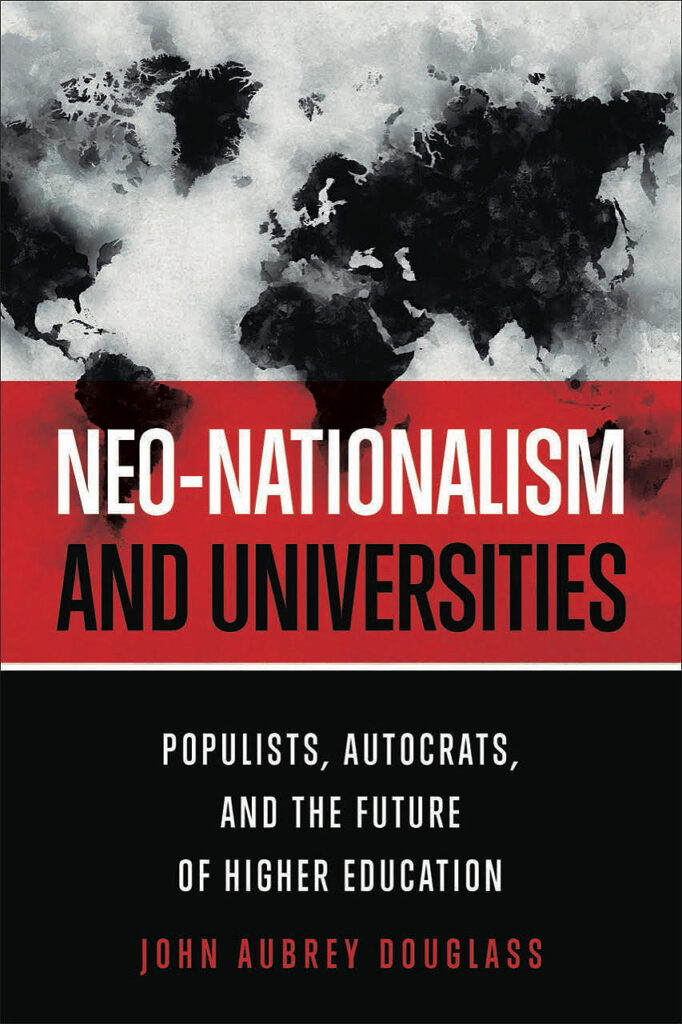
Johns Hopkins University Press
The roots of it go back long before the current political milieu, although it’s much more intense now. There’s always been a strong anti-intellectual bent in American politics, and suspicion that universities and colleges are elite bastions, separated from the realities of working families.
Other things come into play in our era. One is the rising cost of education. It’s very confusing out there with the pricing models that we have. And then there’s the issue of how higher education communicates with people, its relationship to the broader public.
For a long time we’ve had these seeds of discontent — this sense, in some quarters, that universities are hostile to conservative thinking. We’ve had controversy regarding restrictive speech codes, including the concept of safe spaces, and criticism that universities only hire leftists and attempt to indoctrinate students. There is a sense by many that universities are too focused on social activism and not enough on the utilitarian needs of society.
Recent campus protests play into this narrative. During the terrible tragedy that we see in the Middle East, we’ve had protests where we had student against student, faculty against faculty. Universities claim they are these bastions of free thinking, a marketplace for ideas and debate. But for some people it appears that, no, they’re not.
And then social media plays very much into this and amplifies it.
Even among those that are center-left and center-right politically, universities are seen as increasingly intolerant environments. That is a big problem.
If you can generalize, how does the American public perceive higher education?
The Pew Research Center uses this concept of confidence in America’s colleges and universities. Polling has its problems, but Pew’s research shows a huge decline overall in trust in higher ed, among both Democrats and Republicans.
One figure that stands out: Something like two-thirds of Republicans think our higher ed institutions are literally bad for the country.
The public and the media tend to focus on highly selective colleges and research-intensive universities, yet 43% or so of all students go to open access community colleges. So the poll respondents are ignoring the tremendous diversity of institutional types that we have, with different student populations and missions.
There’s also a sense that we’re not getting value for money, that teaching is relegated to a lesser importance than research or other activities. And in the polling, people seem to believe that, as I noted, a significant amount of teaching is about indoctrination.
There’s a huge disconnect there. There’s a failure to understand how many students are in STEM fields compared to fields where disciplines might be more oriented to social activism, and that the vast majority of students are not political activists — they are working to get their degrees and enter the workforce.
But again: These attacks work. It worked really well for Ron DeSantis [Florida’s Republican governor] to attack these institutions. And so we’re going to continue to see it. And based on the rhetoric from J.D. Vance, Trump and others, it’s going to ratchet up.
The Pew poll that you reference also shows the public losing trust in science. I assume that also would carry over to universities.
Scientists at universities and elsewhere have been portrayed by Trump and his allies as politically biased actors. That, for example, climate change is a hoax invented by a leftist scientific community.
Again, these attacks on science and scientists fits in with the broader pattern: You can’t trust the academics. You can’t trust the experts and the intellectuals. They’re all part of this deep state, and they need to be attacked and reformed. The challenge of dealing with the COVID pandemic undoubtedly added to this story line — even if university-based research led to the rapid development of life-saving vaccines.
People might assume that big states like California, Illinois or New York have the capacity and resources to resist a hostile incursion. How much leverage does the federal government really have over universities? You seem to be saying: quite a bit.
Absolutely. We’re still speculating, obviously, but let’s go back to the threat of mass deportations. In a state like California, that could affect every college and university.
We could really see some huge across-the-board financial cuts that could include financial aid, as well as academic research.
John Aubrey Douglass
We still have to see how that unfolds, but it seems almost nonsensical. How mass will the deportations be? Are we really going to have large deportation camps? Are we going to really have raids on conservative businesses? Agriculture is pretty conservative, and these businesses really need undocumented workers.
Are they really going to raid campuses to go after undocumented students? There are about 87,000 undocumented students in California. Many more students are undocumented nationwide. We have many talented international students, undergraduate and graduate, and faculty — might travel bans and the deportation scheme include some of them?
Then there’s the issue of possible changes in federal student aid, the phased end of loan forgiveness programs for those who become teachers and the like, and possibly targeted cuts in federal funding for academic research.
But that’s an enormous issue, isn’t it? Hundreds of millions of dollars every year in research fields ranging from defense to agriculture, health, education, computer science, space exploration — a huge list.
Faculty in almost every four-year institution are seeking grants for research. The bulk of the grant money is going to these big research-intensive universities, public and private, but mostly public. So the federal government has a range of potential actions that relate to grants and research funding. At UC, the largest funder is the federal government.
We might expect a strong move from Trump personally to cut research funding. We can look back at his first term and see that every budget he offered proposed substantial cuts to academic research. Health research, for example — he proposed to gut the National Institutes of Health. He proposed simply ending the National Endowment for the Humanities.
It’s not generally known to people outside of the university community, but a component of research grants is that the federal government pays a percentage — sometimes a pretty large percentage — of the “indirect” infrastructure costs associated with research. Buildings, maintenance, electricity — these are substantial costs for the universities.
Drastically reducing indirect funding is part of the Project 2025 blueprint. If that happens, it would create a giant financial hole for research-intensive universities.
There’s also the route of potentially impounding funds. Suppose Congress sets out funding for National Science Foundation grants, and the NSF offers research grants related to climate change. Under the new theory of executive branch power, Trump could say: “No, I don’t want to spend money on that — I’m going to impound it.”
Earlier, you mentioned potential cuts to student financial aid.
Financial aid for students will be harder to cut. Pell Grants, Perkins Loans and other kinds of aid are in federal legislation. Congress sets the amount, so they’re harder for the president to reduce.
But we have the specter of the larger MAGA agenda. If it’s about making a smaller federal government, and about more tax cuts, we could really see some huge across-the-board financial cuts that could include financial aid, as well as academic research.
We’re seeing new tools being developed to punitively target specific campuses and projects, and even specific researchers. For example, there’s at least a threat that the U.S. Office for Civil Rights will be weaponized to go after a university, possibly auditing it for “woke” programs and then threatening to withhold federal funding for financial aid or other programs.
Recently you wrote that universities and colleges themselves bear some responsibility for this hostile landscape. They’ve made themselves vulnerable by the way they’ve sort of set themselves apart. Now, as the political culture changes, should these institutions reevaluate their position in society and how they engage the public?
They should do that. The hard part is how to do it.
Should we be looking at what the polls tell us? Are there constituents we’re not reaching? Should we be trying to give them a better sense of the value of what we do? What could we do to rebuild what used to be a strong consensus of support for higher ed?
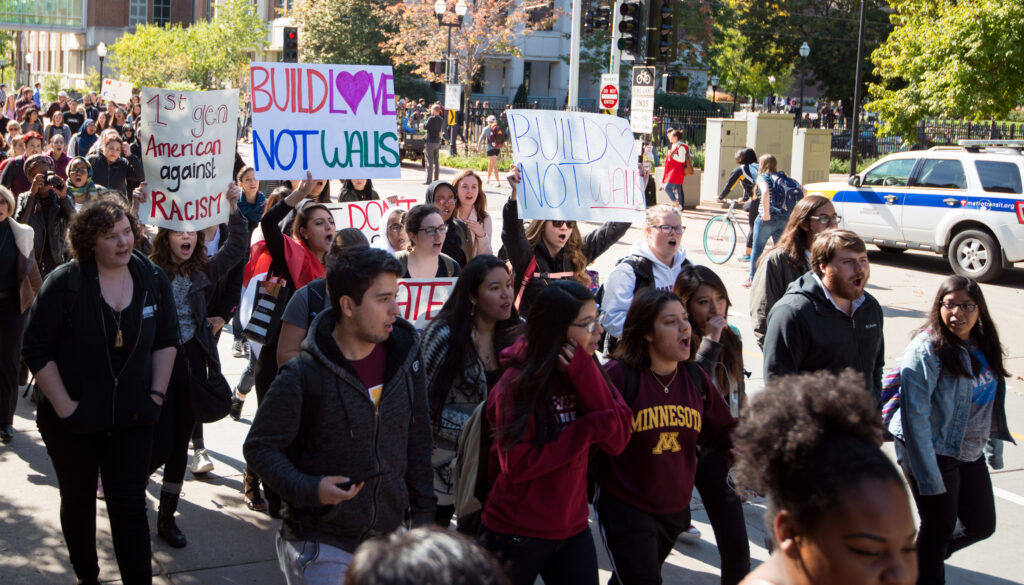
Fibonacci Blue via Flickr
In the 1960s, even with the Vietnam War and all the turbulence of that time, there was a very high level of trust in American higher education.
And so we’ve got to look at those numbers and ask: What are the things that we can be doing to promote all of our core values? That it isn’t just about race and not just about gender — themes that are reiterated in social media and right-wing news.
It’s about a larger idea of diversity and being inclusive, and that we really are a marketplace of ideas and offer a tolerant and expansive learning environment.
To do this, we need introspection on our policies and behaviors. We need to evaluate how our colleges and universities are perceived, and seek ways to better communicate our goals and progress to a larger world, and not just to our supporters.
But some people might read that as a recommendation that universities should abandon their role in promoting social progress, or in fostering success for students from disadvantaged groups.
Even with the attacks we are seeing and will see on the autonomy and mission of our colleges and universities, I think we will weather the storm and retain our essential purposes, including promoting socio-economic mobility, generating talented citizens and acting as powerful centers for knowledge production.
In the short run, and at least until the midterm elections, the question is how to approach the new political environment.
Let’s say we go down the road of significant federal interventions, including substantial funding cuts. Will academic leaders then say, ‘OK, we need to work as hard as we can to block all interventions by harnessing our lawyers and Washington-based lobbying groups?’ Or should we just try to keep a lower profile, seek introspection and fight selectively so we’re not seen as recalcitrant and unable to change and read the contemporary political world?’
I do think it’s probably smart for academic leaders to focus on the issues that matter to them the most — to choose one’s battles.
This interview has been edited for length and clarity.